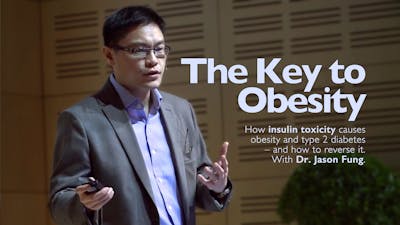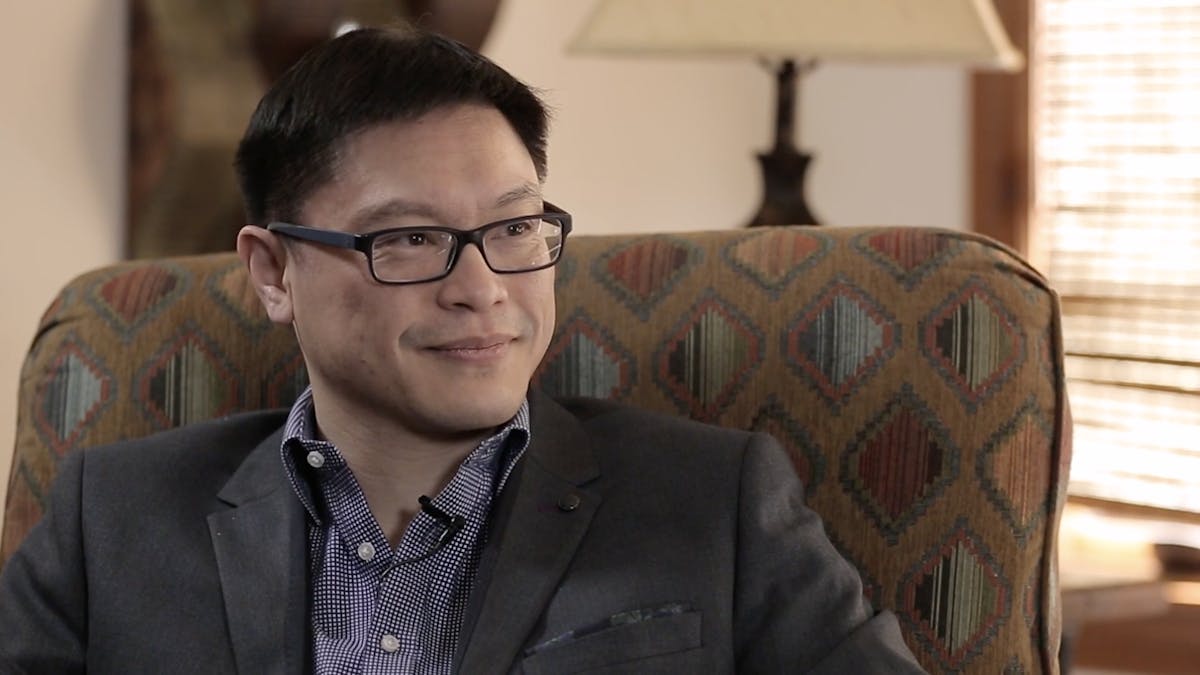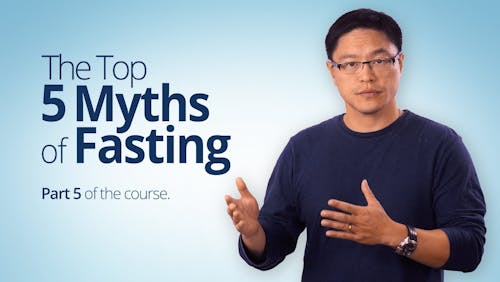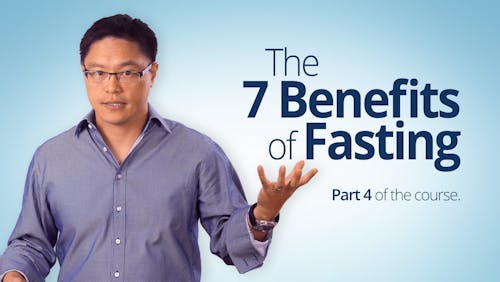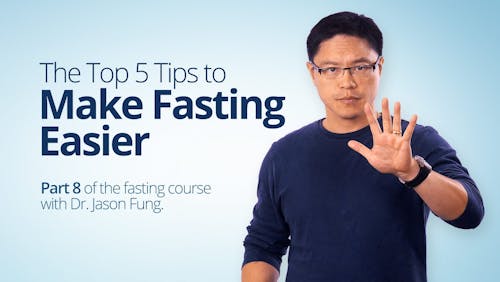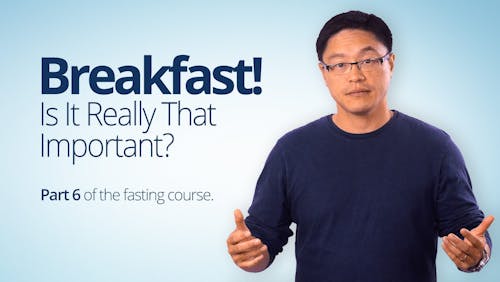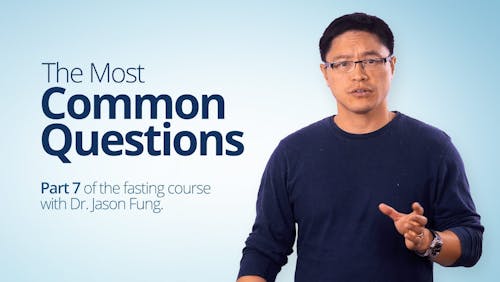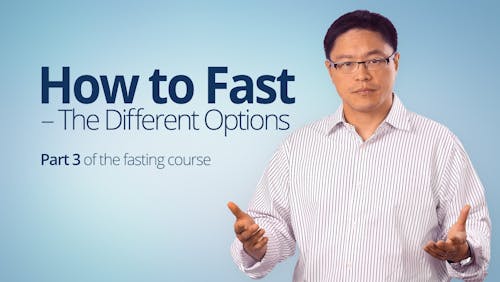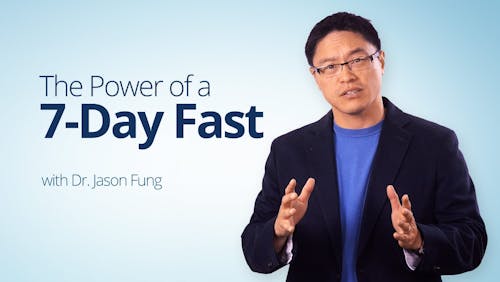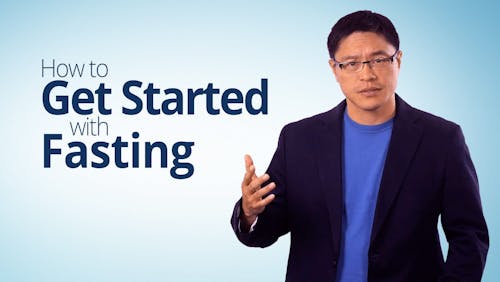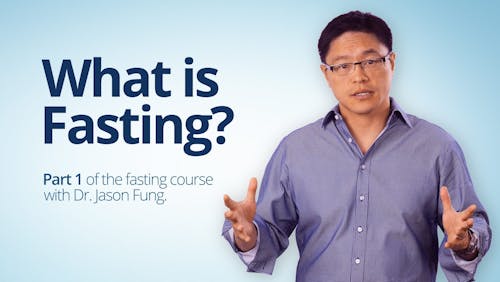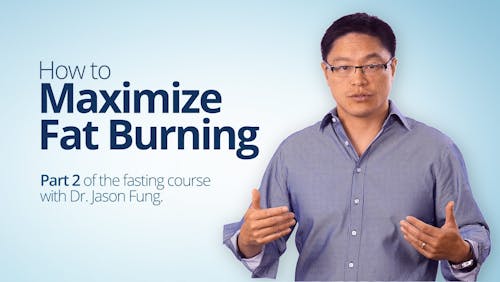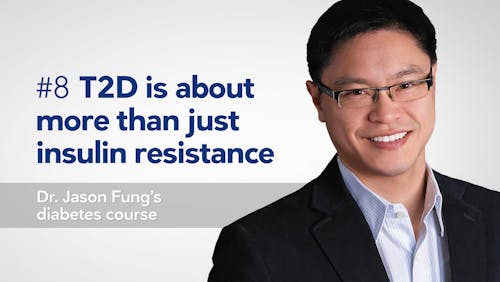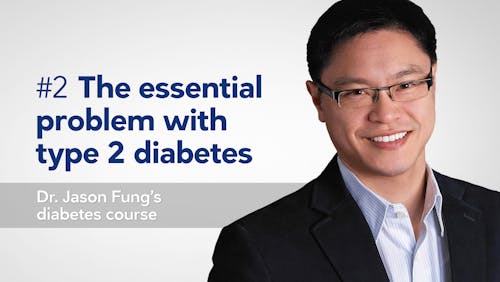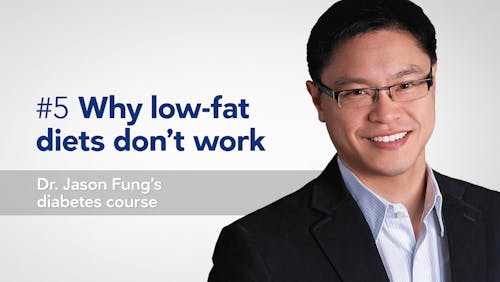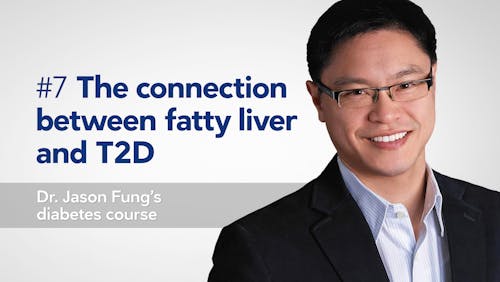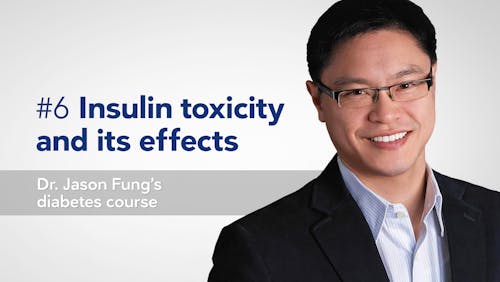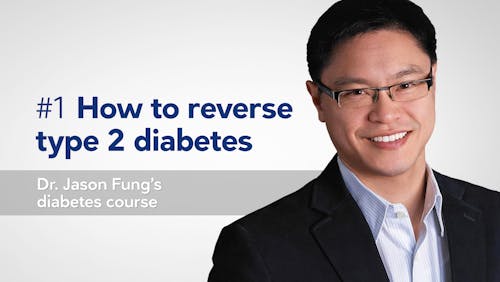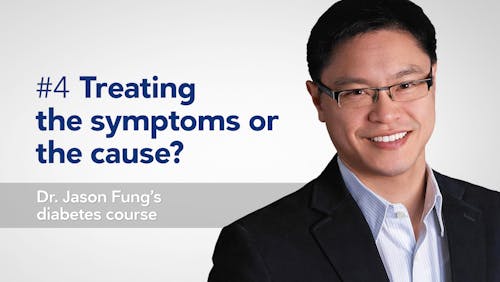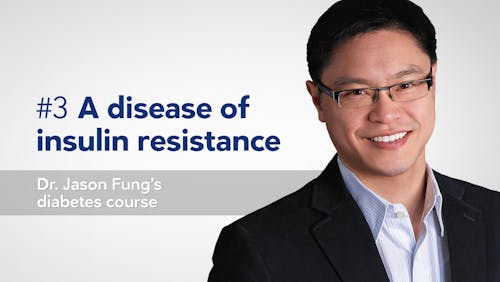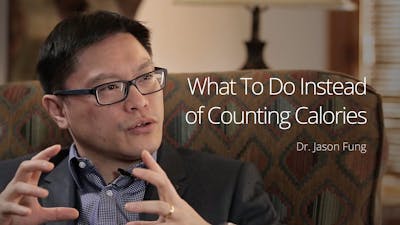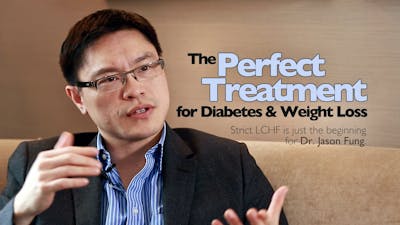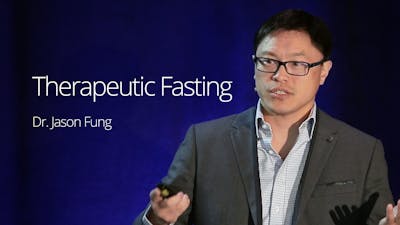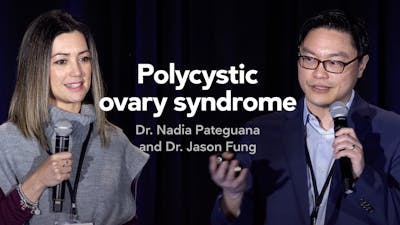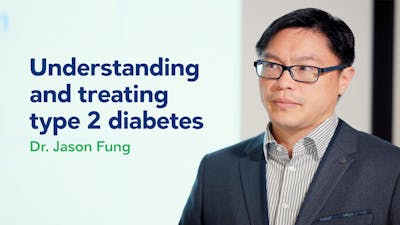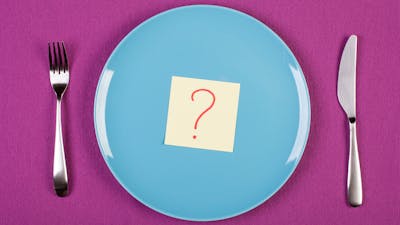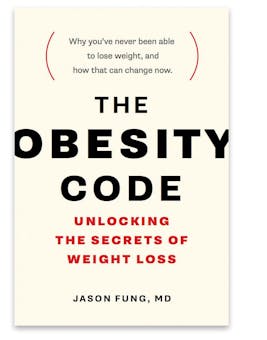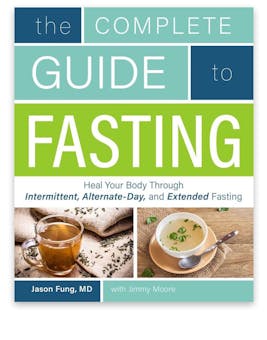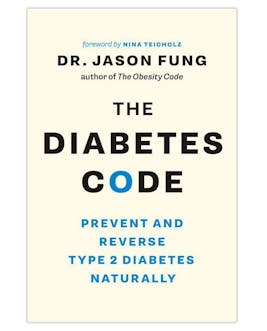Dr. Jason Fung is a Canadian nephrologist. He’s a world-leading expert on
intermittent fasting and
low carb , especially for treating people with
type 2 diabetes . He has written
three best-selling health books and he co-founded the Intensive Dietary Management program.
Dr. Fung has his own website at thefastingmethod.com .
Dr. Fung graduated from the University of Toronto and completed his residency at the University of California, Los Angeles. He lives and works in Toronto, Canada.
Dr. Fung occasionally collaborates with Team Diet Doctor on fasting related topics. Together we want to make it simple for people to understand and implement intermittent fasting, to improve their health. Below is some of the material with Dr. Fung on Diet Doctor.
About Dr. Fung
Watch Dr. Fung’s brief presentation above.
More with Dr. Fung
Dr. Fung is also on Twitter , Facebook , Instagram , LinkedIn and YouTube .
Books
The Obesity Code The Complete Guide to Fasting The Diabetes Code
Other publications
BMJ Case Reports 2018: Therapeutic use of intermittent fasting for people with type 2 diabetes as an alternative to insulin
Articles
Does sugar-free gum break a fast? The biochemistry of insulin resistance How do you repair low metabolism after a low-calorie diet? Physician success story – Dr. Esther Kawira How to transition from weight loss to maintenance mode? How fasting made all the difference for Jennifer After trying every diet, Karen reaches her goals by trusting the process Sandra’s incredible weight-loss journey Controlling hunger – part 2 Why is blood glucose elevated when fasting? Video post: What is insulin resistance? What is the optimal fast frequency? Video post – what breaks a fast? What is aging? Longevity lessons from the Blue and ‘unBlue’ Zones A different path to the same destination "Can you get type 2 diabetes again once you've reversed it?" Nutrition and your doctor Announcing the Low Carb MD Podcast Does fasting burn muscle? PCOS, anovulatory cycles and hyperinsulinemia – PCOS 9 PCOS and hyperinsulinemia – PCOS 8 Could you fast for health without weight loss? My single best weight loss tip With one foot in the grave, Robert turned things around and lost 200 lbs PCOS and hyperandrogenism – PCOS 7 PCOS and associated conditions – PCOS 6 PCOS and obesity – PCOS 5 The truth about salt How to worsen diabetes: follow the worst of the ADA and CDA advice The obesity epidemic The difficulties of diagnosing PCOS - PCOS 4 'Is it okay to have cheat days?' How Dolly turned her obesity and metabolic syndrome around Hyperandrogenism – PCOS 3 Diabetes of bearded women – PCOS 2 Infertility, PCOS and the IDM program Why does blood sugar increase during a fast? When we eat is as important as what we eat – and this is why What and when to eat to reduce insulin Understanding obesity – the key to successful weight loss How do you increase the length of your fasts without stressing the adrenals? New book: The Diabetes Code Cutting calories won't solve your weight issues – do this instead When should you eat if you're working night shifts? Do you recommend going in and out of ketosis? The Warburg Effect and cancer The 6 common features of cancer The powerhouses of the cell and human diseases What are the good and bad effects of fasting? Why carbs and exercise are not the answers to reverse type 2 diabetes The most important thing – practicing fasting safely Is fasting every single day counterproductive? Autophagy – a cure for many present-day diseases? Fasting, cellular cleansing and cancer – is there a connection? Can just the sight of food raise insulin? 'Can you have a normal blood sugar and still be insulin resistant?' 'How many times should I eat during my eating window?' How to eat: fast and break-fast Hyperinsulinemia and cancer Fasting and diseases of excessive growth Are trouble sleeping and anger common while fasting? Medications that actually work for type 2 diabetes Grazing or fasting – and why it matters for weight loss "Life. Is. Good." Can teenagers fast? "Feeling amazing about life again" How a thin person with diabetes reversed her type 2 diabetes How to not get hungry: Fasting and ghrelin Why type 2 diabetes is a reversible dietary disease Why red meat won't kill you Do you have to eat a minimum amount of carbs? How carbs affect your cholesterol Does eating extra fat make you fat? Why does sugar make people fat? Intermittent fasting vs. caloric reduction – what's the difference? Fructose and fatty liver – why sugar is a toxin Fasting and muscle mass The ancient secret of weight loss How Gina really healed herself from obesity and metabolic syndrome Fasting and hunger Does fat cause type 2 diabetes? Fasting and exercise Can intermittent fasting cause hormonal imbalances in women? Fasting myths How fasting reverses type 2 diabetes Fasting and re-feeding syndrome How fasting affects your physiology and hormones Why fasting is more effective than calorie counting Can I use cream in my coffee during fasting? Fasting and cholesterol Fasting and growth hormone How does fasting affect your brain? "Do you have any suggestions to improve sleep when fasting?" Complications of diabetes – a disease affecting all organs How to renew your body: Fasting and autophagy Longer fasting regimens – 24 hours or more More practical tips for fasting Short fasting regimens – less than 24 hours Practical tips for fasting The common currency in our bodies is not calories - guess what it is? How to use antibiotics: Why less is more How Kevin Hall tried to kill the insulin hypothesis with pure spin My top 8 weight-loss hacks Women and fasting How Gino reversed his type 2 diabetes by doing the opposite Reversing type 2 diabetes: Sunny and Cherie Why the first law of thermodynamics is utterly irrelevant How to fix your broken metabolism by doing the exact opposite How NOT to write a diet book The Biggest Loser FAIL and that ketogenic study success The diabetes economy Can kids skip breakfast? The 7 practical benefits of fasting
Potential conflicts of interest
Updated August 21, 2019.
Dr. Fung is a co-owner in the Diet Doctor company.
Dr. Fung receives money for treating patients with kidney disease in hospital for general internal medicine and obesity medicine. He owns parts of his medical practice.
He is also a part-owner at Intensive Dietary Management corporation, which provides education and support for fasting.
Dr. Fung receives money from his books The Obesity Code, The Diabetes Code, The Complete Guide to Fasting and The Longevity Solution, and articles on medium.com.
Dr. Fung speaks at conferences and occasionally receives speaking fees.
He has a YouTube channel discussing nutrition and fasting.
Dr. Fung eats a low-carbohydrate diet and fasts regularly.
Dr. Fung drinks tea daily. He receives consulting fees from Pique Tea.
 Dr. Jason Fung is a Canadian nephrologist. He’s a world-leading expert on intermittent fasting and low carb, especially for treating people with type 2 diabetes. He has written three best-selling health books and he co-founded the Intensive Dietary Management program.
Dr. Jason Fung is a Canadian nephrologist. He’s a world-leading expert on intermittent fasting and low carb, especially for treating people with type 2 diabetes. He has written three best-selling health books and he co-founded the Intensive Dietary Management program.
![Are all carbohydrates equally bad?]()
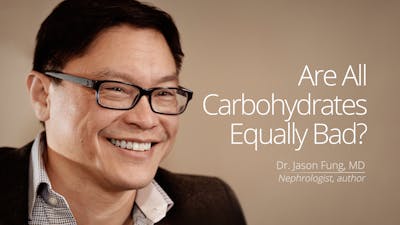
![Do you have to count calories to lose weight?]()
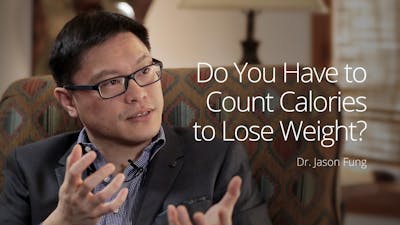
![The 2 big lies of type 2 diabetes]()
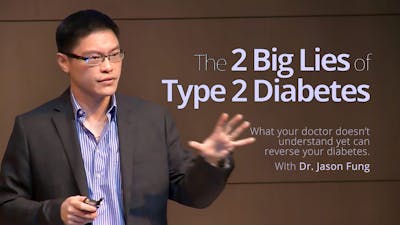
![The cause of obesity]()
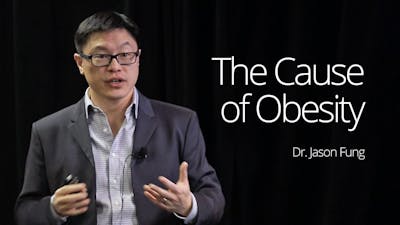
![A new paradigm for type 2 diabetes]()
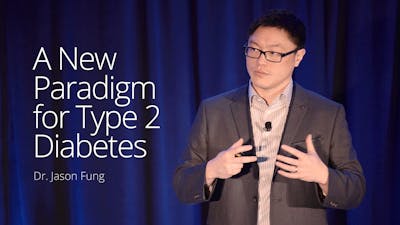
![The key to obesity]()
